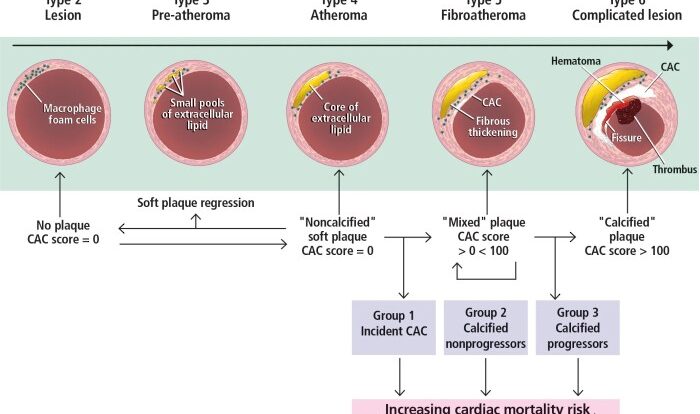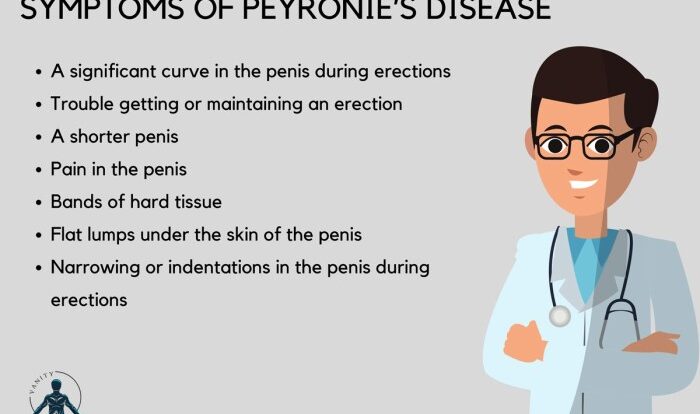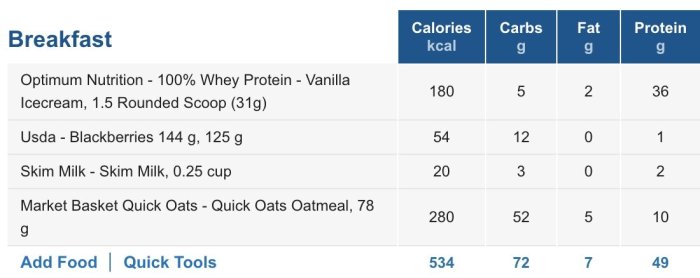When do you stop losing weight after gastric sleeve? This question often arises during the weight loss journey after undergoing gastric sleeve surgery. Understanding the plateau phase, hormonal changes, and other factors that influence weight loss can help you navigate this common challenge.
The plateau phase is a temporary period where weight loss slows down or stops despite continued efforts. This can be frustrating, but it’s an expected part of the weight loss process and does not indicate failure.
Plateau Phase
The plateau phase is a common occurrence in weight loss journeys, including after gastric sleeve surgery. It refers to a period when weight loss stalls or slows down significantly, despite continued adherence to diet and exercise.
After gastric sleeve surgery, the plateau phase typically occurs around 6-12 months post-surgery. During this phase, the body may have adapted to the reduced stomach size and is able to consume more food without experiencing the same level of fullness as before.
Metabolism Adaptation
One of the reasons for the plateau phase is the body’s adaptation to the reduced calorie intake. Over time, the body may decrease its metabolic rate, burning fewer calories at rest and during activity. This can make it more challenging to lose weight.
Hormonal Changes
Hormonal changes can also contribute to the plateau phase. The gastric sleeve surgery can affect the production of hormones that regulate hunger and satiety. As the body adjusts to the new hormonal balance, it may experience fluctuations in appetite and cravings.
Behavioral Factors
Behavioral factors can also play a role in the plateau phase. As the initial excitement and motivation from surgery subside, individuals may become less vigilant about their diet and exercise routine. This can lead to increased calorie intake and decreased physical activity, contributing to weight loss stagnation.
Hormonal Changes
Hormones play a crucial role in weight regulation and can significantly impact the plateau phase after gastric sleeve surgery.
Following gastric sleeve surgery, hormonal imbalances can occur, affecting metabolism, appetite, and weight loss. These imbalances may contribute to the plateau phase by:
Leptin
- Leptin is a hormone that signals fullness to the brain.
- After gastric sleeve surgery, leptin levels may decrease, leading to increased hunger and reduced satiety.
Ghrelin
- Ghrelin is a hormone that stimulates hunger.
- In the plateau phase, ghrelin levels may increase, further contributing to increased appetite.
Insulin
- Insulin helps regulate blood sugar levels.
- After gastric sleeve surgery, insulin sensitivity may improve, leading to better blood sugar control.
- However, in the plateau phase, insulin sensitivity may decrease, resulting in increased blood sugar levels and potential weight gain.
Dietary Adjustments
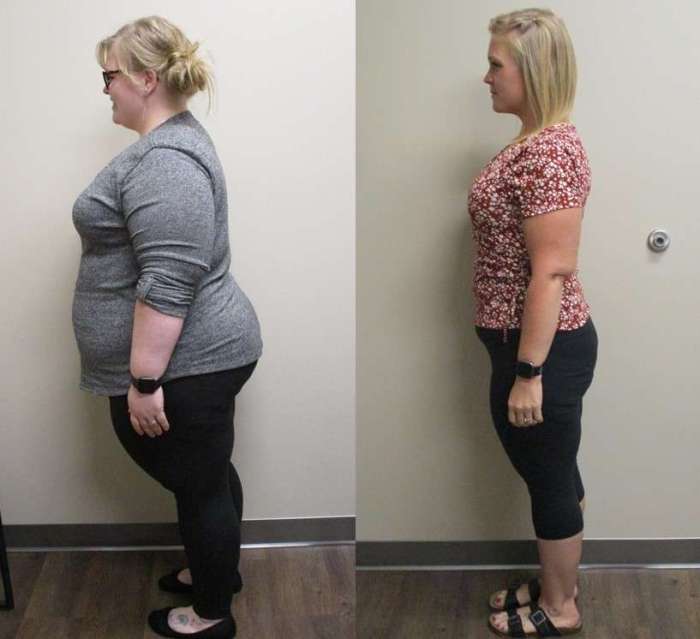
Dietary modifications are crucial for overcoming weight loss plateaus after gastric sleeve surgery. By adjusting your food intake, you can reignite your metabolism and break through the plateau.
Here are some dietary changes that may help:
Focus on Protein and Fiber, When do you stop losing weight after gastric sleeve
Protein and fiber are essential nutrients that promote satiety and help regulate blood sugar levels. Aim to include lean protein sources like chicken, fish, tofu, and beans in your meals. Incorporate high-fiber foods such as fruits, vegetables, and whole grains to promote a feeling of fullness and reduce cravings.
Reduce Processed Foods and Sugary Drinks
Processed foods and sugary drinks are often high in calories, unhealthy fats, and added sugars, which can hinder weight loss. Limit your intake of these items and opt for nutrient-rich whole foods instead.
Hydrate Adequately
Staying hydrated is vital for overall health and weight management. Drink plenty of water throughout the day, especially before meals, as it can help curb hunger and promote a feeling of fullness.
Consider Intermittent Fasting
Intermittent fasting involves alternating periods of eating and fasting. This can help regulate insulin levels, boost metabolism, and aid in weight loss. Consult with your healthcare provider before starting any fasting regimen.
Meal Planning and Portion Control
Planning your meals in advance and controlling portion sizes can help you stay on track with your weight loss goals. Prepare healthy meals and snacks that align with your dietary adjustments, and be mindful of the amount of food you consume at each meal.
Exercise Regimen: When Do You Stop Losing Weight After Gastric Sleeve
Exercise can play a significant role in breaking weight loss plateaus. Regular physical activity increases calorie expenditure, improves metabolism, and builds muscle mass.
Specific Exercise Recommendations
*
-*High-Intensity Interval Training (HIIT)
Alternating short bursts of intense exercise with rest or low-intensity periods. HIIT boosts metabolism and burns fat effectively.
-
-*Resistance Training
Lifting weights or using resistance bands helps build muscle, which increases calorie expenditure even at rest.
-*Aerobic Exercise
Activities like running, swimming, or cycling improve cardiovascular health and burn calories.
-*Compound Exercises
Exercises that work multiple muscle groups simultaneously, such as squats, lunges, and push-ups, are highly effective for calorie burn.
Hydration
Staying hydrated is essential for overall health and well-being, including weight loss. When the body is adequately hydrated, it can function optimally, supporting metabolism and energy levels. Conversely, dehydration can lead to fatigue, headaches, and impaired cognitive function, which can impact weight loss efforts.
During the plateau phase, hydration becomes even more crucial. As the body adjusts to its new weight, it may retain more water, leading to a temporary stall in weight loss. By increasing water intake, individuals can help flush out excess water and promote weight loss.
Guidelines for Adequate Water Intake
The recommended daily water intake varies depending on factors such as age, activity level, and climate. However, a general guideline is to drink eight glasses of water per day. During the plateau phase, individuals may need to increase their water intake to 10-12 glasses per day to support hydration and weight loss.
Sleep Patterns
Sleep plays a crucial role in weight loss. During sleep, the body produces hormones that regulate appetite and metabolism. When sleep is disrupted, these hormones can become imbalanced, leading to increased hunger and cravings, which can hinder weight loss progress.
During the plateau phase, it’s common to experience sleep disturbances. Stress, anxiety, and hormonal changes can all contribute to poor sleep quality and duration.
Tips for Improving Sleep Quality and Duration
- Establish a regular sleep-wake cycle, even on weekends.
- Create a relaxing bedtime routine, such as taking a warm bath, reading a book, or listening to calming music.
- Make sure your bedroom is dark, quiet, and cool.
- Avoid caffeine and alcohol before bed.
- Exercise regularly, but not too close to bedtime.
- Consider consulting with a sleep specialist if you have persistent sleep problems.
Stress Management
Stress can significantly hinder weight loss progress and contribute to plateaus. It triggers the release of hormones like cortisol, which can increase appetite, cravings, and fat storage. Stress also impairs sleep quality and disrupts dietary discipline.
Incorporating stress-reducing techniques can help mitigate these effects and facilitate weight loss.
After gastric sleeve surgery, weight loss typically slows down or plateaus after 12-18 months. While this can be discouraging, it’s important to remember that long-term weight management is a journey. Similar to the question of how old you have to be to get laser hair removal , there’s no one-size-fits-all answer for when weight loss stops after gastric sleeve.
However, by maintaining healthy habits, you can continue to see gradual weight loss over time.
Exercise
- Regular exercise is a potent stress reliever. It releases endorphins, which have mood-boosting and calming effects.
- Choose activities you enjoy, such as brisk walking, cycling, or swimming, to make exercise a stress-free experience.
Mindfulness Techniques
- Mindfulness practices like meditation, deep breathing exercises, and yoga can help calm the mind, reduce stress, and improve overall well-being.
- Set aside a few minutes each day to practice mindfulness techniques and observe your thoughts and feelings without judgment.
Social Support
- Surrounding yourself with supportive family, friends, or a support group can provide a sense of belonging and reduce stress levels.
- Share your weight loss journey with trusted individuals who can offer encouragement and accountability.
Sleep Hygiene
- Establishing a regular sleep schedule and ensuring adequate sleep duration (7-9 hours per night) can significantly reduce stress and improve overall health.
- Create a relaxing bedtime routine, such as taking a warm bath, reading a book, or listening to calming music, to promote restful sleep.
Medical Conditions
Medical conditions can contribute to weight loss plateaus after gastric sleeve surgery. It is crucial to consult a healthcare professional to determine the underlying cause and receive appropriate treatment.
Thyroid Issues
Hypothyroidism, an underactive thyroid gland, can slow down metabolism and make weight loss challenging. Symptoms include fatigue, cold intolerance, constipation, and dry skin. Thyroid function tests can diagnose hypothyroidism, and medication can help regulate thyroid hormone levels.
Polycystic Ovary Syndrome (PCOS)
PCOS is a hormonal disorder that affects women and can cause weight gain, insulin resistance, and irregular periods. Managing PCOS involves lifestyle modifications, such as diet and exercise, as well as medications to regulate hormones and improve insulin sensitivity.
Cushing’s Syndrome
Cushing’s syndrome is a condition caused by excess cortisol production. Cortisol can lead to weight gain, high blood pressure, and diabetes. Diagnosis involves blood and urine tests, and treatment may include medications or surgery to remove the source of cortisol overproduction.
Medications
Certain medications, such as antidepressants and steroids, can cause weight gain as a side effect. If you experience weight gain while taking medication, discuss alternative options with your doctor.
Realistic Expectations

Setting realistic weight loss expectations is crucial after gastric sleeve surgery. Unrealistic goals can lead to plateaus and discouragement, hindering your progress.
Aim for a gradual weight loss of 1-2.5 pounds per week. Rapid weight loss can be unsustainable and may result in nutrient deficiencies or other health concerns.
Importance of Patience
Gastric sleeve surgery is not a quick fix. It takes time and effort to lose weight and maintain it. Be patient with yourself and don’t get discouraged if you don’t see results immediately.
Focus on making healthy lifestyle changes that you can sustain long-term. These changes will help you reach your goals and maintain a healthy weight for life.
Patience and Consistency
Embarking on a weight loss journey requires immense patience and unwavering consistency. It’s crucial to recognize that weight loss is not a linear process, and plateaus are an inevitable part of the journey. During these times, it’s easy to become discouraged and lose motivation.
However, it’s essential to stay committed to your weight loss plan and remember that consistency is key to long-term success.
Stay the Course
During plateaus, it’s tempting to make drastic changes to your diet or exercise routine. However, these sudden adjustments can disrupt your progress and lead to burnout. Instead, focus on making small, sustainable changes that you can maintain over time. Stay true to your calorie deficit, prioritize nutrient-rich foods, and engage in regular physical activity.
By consistently adhering to your plan, you’ll eventually break through the plateau and continue losing weight.
Don’t Compare Yourself to Others
Everyone’s weight loss journey is unique, and comparing yourself to others can be counterproductive. Focus on your own progress and celebrate your achievements, no matter how small. Remember that weight loss is not a race, and it’s important to set realistic goals that are tailored to your individual needs.
Stay Motivated
Staying motivated during a plateau can be challenging, but it’s essential to find ways to keep yourself inspired. Set small, achievable goals, and reward yourself for your efforts. Join a support group or connect with others who are also on a weight loss journey.
Seek encouragement and support from loved ones, and remember why you started this journey in the first place.
Wrap-Up
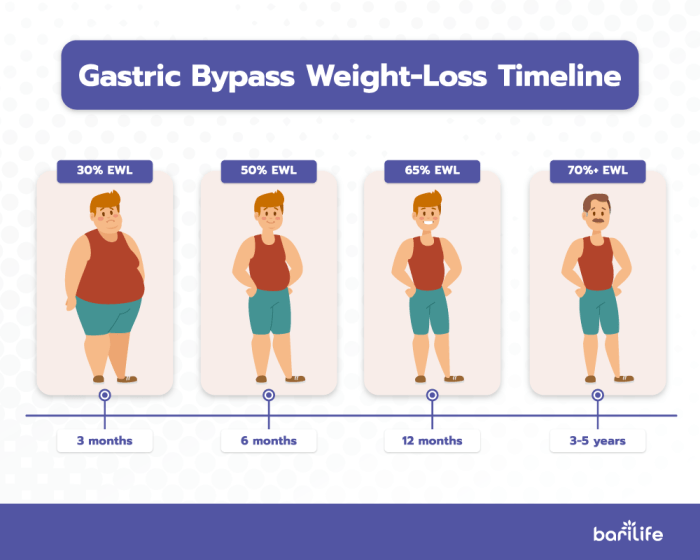
Overcoming weight loss plateaus requires a multifaceted approach involving dietary adjustments, exercise, hydration, sleep optimization, stress management, and realistic expectations. Patience and consistency are crucial, as plateaus are temporary setbacks that can be overcome with perseverance.
If you’re experiencing a plateau, don’t be discouraged. Seek guidance from your healthcare provider to rule out any underlying medical conditions and adjust your weight loss plan accordingly. With the right strategies and support, you can break through plateaus and continue your weight loss journey successfully.
FAQs
What causes weight loss plateaus after gastric sleeve surgery?
Plateaus can be caused by hormonal changes, dietary habits, inadequate exercise, poor sleep, stress, and certain medical conditions.
How long does the plateau phase typically last?
The duration of plateaus varies, but they typically last for a few weeks or months.
What can I do to break through a weight loss plateau?
Adjust your diet, increase physical activity, optimize sleep, manage stress, and consult with your healthcare provider to rule out any underlying medical conditions.
